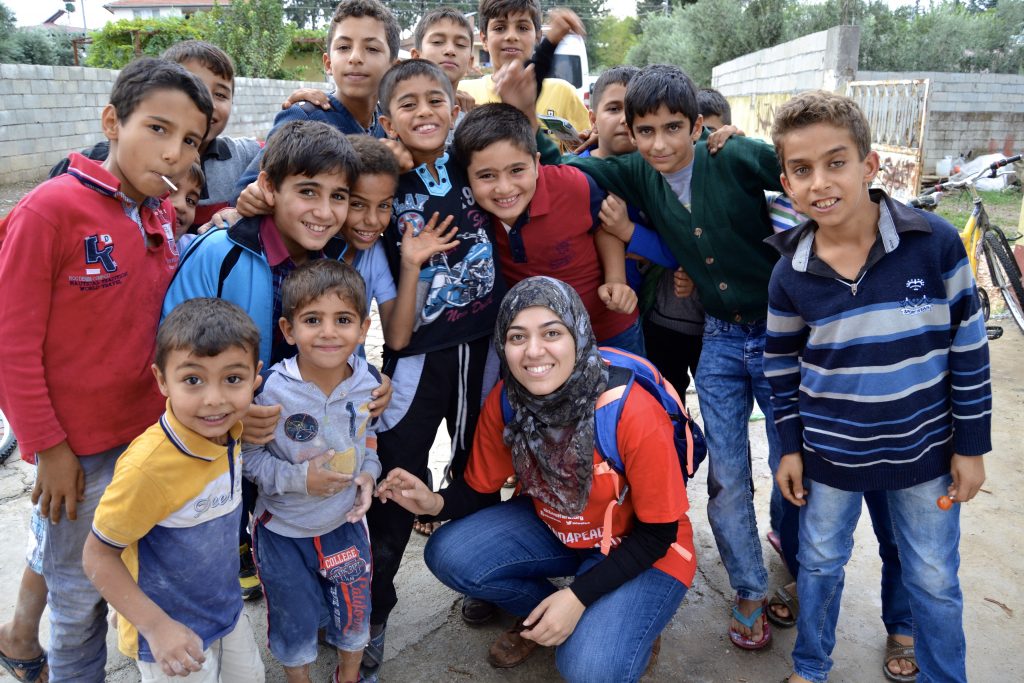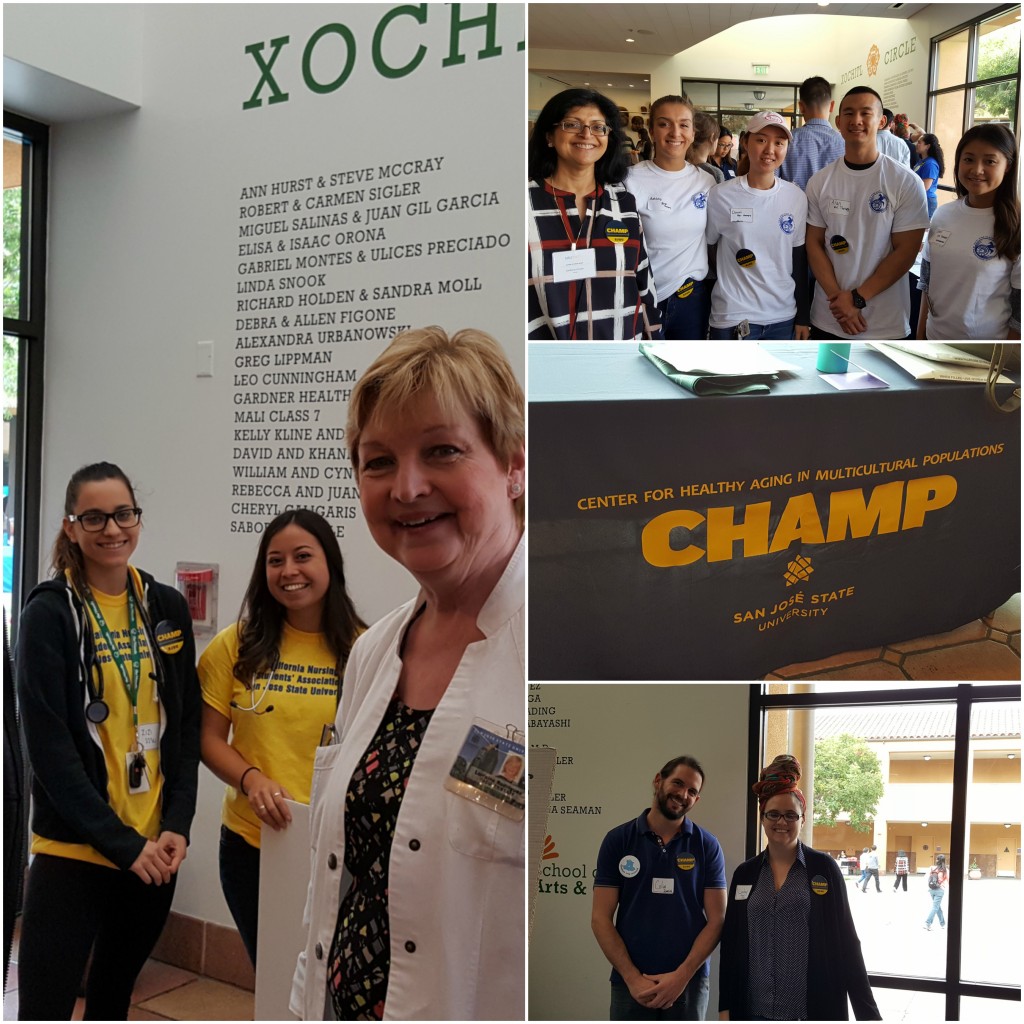By: Dr. Peter Allen Lee
The School of Social Work at San José State University recently marked its 50th anniversary. One original goal of the School was to prepare professional social workers to serve Spanish-speaking communities: marginalized and in particular need. So serious was this intention, that working-fluency in Spanish was required to earn the Masters of Social Work degree at this school. Over the decades, the School has experienced significant transitions: broadening the commitment to marginalized communities. Social work’s instrumental role in social justice remains paramount.

Juneteenth rally participants gather at SJSUs Victory Salute sculpture of Tommie Smith and John Carlos June 19, 2020.
(Photo: Robert C. Bain, university photographer)
Our School is still on its social justice journey. We envision a just and equitable world in which diverse individuals, families, and communities thrive. Where are we in pursuing this vision? Have we done enough to denounce anti-Black racism and support Black Lives Matter? Have we denounced Anti-Asian violence? Has the School updated its curriculum? Are students and faculty engaging in needed discourse to create lasting change?
The murder of George Floyd and killing of other Black/Africans by law enforcement, recent escalation of anti-Asian violence, and the COVID-19 pandemic compounding problems of inequity affecting the well-being of marginalized communities deeply affects us all. Many of us are experiencing personal tragedy. And while the School has not yet published an anti-racism stance, we remain active. This includes the efforts of our dedicated faculty and inspired students who hold the School accountable for action and change.
While considering “where we stand,” the School’s leadership decided first that intentional, regular, and genuine consultation with our Black/African American colleagues is vital. From their advice, the faculty has committed to three goals: (1) to discuss at every faculty meeting Black Lives Matter and the strategy to combat racism; (2) to update our culture and diversity model, the Transcultural Perspective, and clarify of how racism and anti-racism are addressed through concepts such as positionality and power, privilege and oppression; (3) to have all members of the faculty engage
in developing a curriculum that describes cultural tenets, values, norms of their heritage. The goals of this process are to be able to participate in difficult discussions among ourselves and have experiential exercises, to eventually extend these discussions beyond the context of their self-identified ethnic groups, and to be able to model these types of discussions within classes. The School has also reshaped new student orientation, sponsored financially School-wide attendance at anti-racism conferences, and supported student-led initiatives.
Students are advocating for updated curriculum to include overlooked significant contributions by scholars and professionals of color. Our undergraduate and graduate student organizations sponsor or co-sponsor regular events such as our monthly School-wide forum about racism and social justice topics including “India’s Farmers Protest: What’s Happening in India,” “Working with Individuals Who Have Experienced Human Trafficking,” and “Da Real Anti-Racist.”
Our faculty members, students, and staff are at different places on this social justice journey; some are well-equipped and already immersed, and some early in discovery. Many have divergent views. But, we as a School are purposely preparing to have authentic conversations; specifically including conversations about race and systemic racism, and to be more deliberate in this work. As with most journeys, we encounter milestones, detours, barriers, and even “destination not found” warnings along the way. This is a difficult and messy journey, and yet very worthwhile. No matter where we are, we can always do better as we gain from experiences, mistakes, and the people we meet along the way. The ultimate goal of all these efforts is for the entire School to pursue anti-racism at every level of our interactions: within and beyond our university community, with our students, our colleagues, and within the curriculum. Staying this course is the main call to action and our commitment.
“The trauma of racism is a public health crisis” (Kendi, I., April 6, 2021), and the practice of social work requires that we and our practice are trauma-informed at every level in order to be effective.
 In recognition of her diligent work to eliminate the stigma of mental illness and to improve access to effective mental health treatment around the world, Momentum for Mental Health presented Dr. Meekyung Han, professor, School of Social Works, the “Shining Stars Award of Excellence” at the 22nd annual Shining Stars Benefit event, which recognizes “extraordinary people and organizations doing extraordinary things in the name of advancing mental health services and reducing the stigma that prevents so many from seeking recovery services.” The event was held on October 4th, 2019 at the Rotary Summit Center in San Jose.
In recognition of her diligent work to eliminate the stigma of mental illness and to improve access to effective mental health treatment around the world, Momentum for Mental Health presented Dr. Meekyung Han, professor, School of Social Works, the “Shining Stars Award of Excellence” at the 22nd annual Shining Stars Benefit event, which recognizes “extraordinary people and organizations doing extraordinary things in the name of advancing mental health services and reducing the stigma that prevents so many from seeking recovery services.” The event was held on October 4th, 2019 at the Rotary Summit Center in San Jose.











